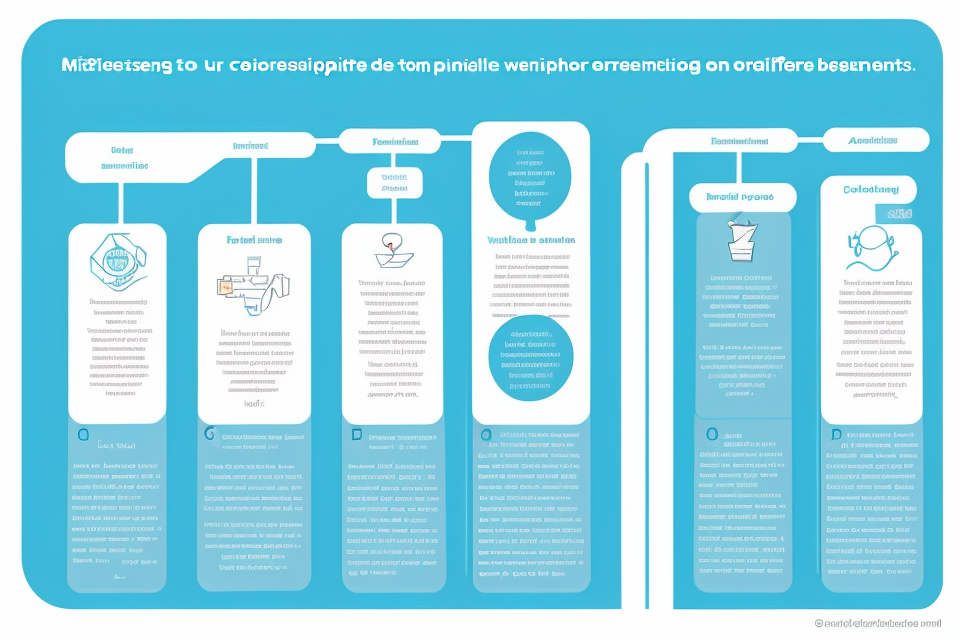
In the age of swipe-right culture and instant gratification, the concept of compatibility in relationships has often been questioned. Some argue that it’s the spark and chemistry that matter most, while others believe that shared values and goals are the key to a successful partnership. But in a world where people are constantly connecting and disconnecting, does compatibility still hold relevance? Join us as we delve into the debate and explore whether compatibility is still a crucial factor in modern relationships.
In today’s modern relationships, compatibility still plays a significant role in determining the success and longevity of a relationship. Compatibility encompasses a wide range of factors such as shared values, beliefs, communication styles, and personal goals. When partners are compatible, they are more likely to understand each other, communicate effectively, and work through challenges together. On the other hand, lack of compatibility can lead to misunderstandings, miscommunication, and ultimately, the demise of the relationship. While technology and social media have changed the way we communicate and form relationships, the importance of compatibility remains a constant. In the end, it is up to each individual to determine what compatibility means to them and how it fits into their own unique relationship journey.
Understanding Compatibility in Relationships
What is Compatibility?
- Definition and explanation
Compatibility refers to the degree of suitability or correspondence between two or more things, in this case, individuals in a romantic relationship. It encompasses various aspects of a relationship, including emotional, intellectual, and practical compatibility. Essentially, it is the ability of two individuals to effectively communicate, understand, and support each other, leading to a harmonious and fulfilling relationship.
- Importance in relationship success
Compatibility plays a crucial role in the success and longevity of a relationship. It helps to create a strong foundation for the couple, allowing them to navigate through life’s challenges and changes together. When partners are compatible, they are more likely to have open and honest communication, share common values and goals, and provide mutual support. This results in a greater sense of connection, trust, and intimacy, which are all essential components of a healthy and satisfying relationship. Additionally, compatibility helps partners to appreciate and respect each other’s differences, fostering a more balanced and harmonious dynamic.
The Five Love Languages
The Five Love Languages theory is a widely-discussed concept in relationship compatibility. Developed by Dr. Gary Chapman, this theory identifies five distinct ways in which individuals express and experience love. These languages, as described by Chapman, are:
- Words of Affirmation: Expressing love and appreciation through verbal compliments, encouragement, and affectionate speech. People with this love language feel most loved when they receive words that affirm their worth and value.
- Quality Time: Giving undivided attention and spending time together, without distractions, to strengthen emotional bonds. Individuals with this love language prioritize meaningful interactions and cherish quality moments shared with their partners.
- Receiving Gifts: Expressing love through thoughtful, meaningful gifts that symbolize effort and thoughtfulness. People with this love language appreciate gestures that show their partner has been attentive to their needs and desires.
- Acts of Service: Expressing love by doing things that make life easier or more enjoyable for one’s partner. Acts of service can include household chores, help with errands, or other tasks that lighten the load for one’s partner.
- Physical Touch: Expressing love through appropriate physical contact, such as holding hands, hugging, or cuddling. People with this love language feel most loved when they receive physical affection from their partner.
Each individual has a primary and a secondary love language, which may differ from their partner’s. Understanding one’s own and their partner’s love languages can significantly impact relationship compatibility. When both partners are aware of each other’s languages, they can communicate more effectively, meet each other’s needs, and avoid misunderstandings. This knowledge can also help couples navigate conflicts and strengthen their emotional connection.
The Myers-Briggs Type Indicator (MBTI)
Introduction to MBTI
The Myers-Briggs Type Indicator (MBTI) is a popular psychological assessment tool designed to measure personality traits and cognitive functions. Developed by Isabel Briggs Myers and Katharine Cook Briggs, the MBTI is based on Carl Jung’s theory of psychological types, which suggests that individuals have preferences for certain mental processes and ways of perceiving and interacting with the world.
Explanation of personality types
The MBTI assesses individuals’ preferences in four dichotomies: extraversion (E) vs. introversion (I), sensing (S) vs. intuition (N), thinking (T) vs. feeling (F), and judging (J) vs. perceiving (P). These preferences combine to form 16 different personality types, such as INFJ, ESTP, or ISTJ. Each type has its unique strengths, weaknesses, and characteristics, which influence how individuals perceive and interact with the world.
Importance in relationship compatibility
The MBTI is widely used to assess compatibility in romantic relationships, as it can provide insights into how individuals process information, make decisions, and approach relationships. Understanding each partner’s personality type can help couples better understand each other’s needs, motivations, and communication styles. It can also reveal potential areas of conflict or incompatibility, allowing couples to work on addressing these issues and strengthening their relationship.
While the MBTI has been criticized for its lack of scientific rigor and its oversimplification of complex human behavior, it remains a popular tool for exploring compatibility in modern relationships. By understanding and embracing their individual strengths and weaknesses, as well as those of their partners, individuals can foster stronger, more fulfilling connections and navigate the challenges of interpersonal dynamics with greater ease.
Compatibility in Communication
In modern relationships, compatibility in communication is crucial for a successful partnership. Effective communication is the cornerstone of any healthy relationship, and it plays a significant role in determining the success or failure of a relationship. When two individuals are able to communicate effectively, they are able to understand each other’s needs, wants, and desires, which helps to build trust and strengthen the bond between them.
When it comes to compatibility in communication, there are several key factors that need to be considered. First and foremost, it is important to determine whether both partners have a similar communication style. This means understanding whether one or both partners prefer to communicate in a more direct or indirect manner, and whether they are comfortable with sharing their thoughts and feelings openly.
Another important factor to consider is whether both partners are able to listen actively. Active listening involves paying attention to what the other person is saying, and asking questions to clarify any points that are not clear. When both partners are able to listen actively, they are able to understand each other’s perspective, which helps to build empathy and strengthen the relationship.
Finally, it is important to consider whether both partners are able to resolve conflicts effectively. Conflicts are a natural part of any relationship, and it is important to have a plan in place for resolving them in a healthy and productive way. When both partners are able to communicate effectively during conflicts, they are able to find solutions that work for both of them, which helps to build trust and strengthen the bond between them.
In conclusion, compatibility in communication is a crucial factor in modern relationships. Effective communication involves understanding each other’s communication style, being able to listen actively, and resolving conflicts in a healthy and productive way. When both partners are able to communicate effectively, they are able to build a strong and lasting relationship that is based on trust and mutual respect.
Compatibility in Shared Values and Goals
Importance of shared values and goals
In any relationship, having shared values and goals is crucial for the success and longevity of the partnership. Shared values and goals refer to the common beliefs, attitudes, and objectives that a couple holds. These values and goals shape the way the couple perceives the world, making them an essential aspect of a relationship.
How compatibility in values and goals affects relationships
Having compatible values and goals is essential because it creates a strong foundation for the relationship. When partners share similar values and goals, they are more likely to have a mutual understanding of what they want out of life and their relationship. This understanding leads to better communication, increased trust, and a stronger emotional connection between the partners.
Furthermore, having compatible values and goals can help couples navigate through challenging times in their relationship. When partners face difficulties, they can refer back to their shared values and goals to remind themselves of why they are together and what they hope to achieve in their relationship. This shared vision can help partners work through challenges and come out stronger on the other side.
On the other hand, lack of compatibility in values and goals can lead to significant problems in a relationship. When partners have different values and goals, they may find it challenging to understand each other’s perspectives, leading to misunderstandings and conflicts. Over time, these conflicts can erode the trust and emotional connection between partners, potentially leading to the end of the relationship.
In conclusion, compatibility in shared values and goals is a crucial aspect of modern relationships. It provides a strong foundation for the partnership, promotes better communication, and increases trust and emotional connection between partners. Therefore, it is essential for couples to assess their compatibility in values and goals before committing to a long-term relationship.
Compatibility in Relationship Success
Factors Affecting Relationship Success
In modern relationships, there are several factors that can affect the success of a relationship. Understanding these factors is crucial in determining the importance of compatibility in modern relationships. Some of the key factors that can affect relationship success include:
- Communication: Effective communication is essential in any relationship. Partners need to be able to express their thoughts and feelings openly and honestly without fear of judgment or criticism. Good communication also involves active listening and empathy, which allows partners to understand each other’s perspectives and emotions.
- Trust: Trust is the foundation of any healthy relationship. When partners trust each other, they feel secure and confident in their relationship, which allows them to build a stronger bond. Trust can be built through honesty, transparency, and consistency in actions and words.
- Conflict Resolution: Every relationship will experience conflicts at some point. The ability to resolve conflicts in a healthy and constructive manner is essential in maintaining a strong and healthy relationship. Partners need to be able to negotiate and compromise, and to find solutions that work for both of them.
- Shared Values and Goals: Partners who share similar values and goals are more likely to have a successful relationship. When partners have a shared sense of purpose and direction, they are more likely to support each other and work together towards common goals. This shared sense of purpose can also provide a sense of security and stability in the relationship.
- Emotional Intelligence: Emotional intelligence refers to the ability to recognize, understand, and manage one’s own emotions and the emotions of others. Partners who are emotionally intelligent are more likely to be able to navigate the complex emotional landscape of a relationship, and to communicate effectively and empathetically with each other.
Overall, these factors are essential in determining the success of a modern relationship. Partners who are able to communicate effectively, trust each other, resolve conflicts constructively, share similar values and goals, and exhibit emotional intelligence are more likely to have a successful and fulfilling relationship. Compatibility in these areas is crucial in determining the success of a modern relationship.
Compatibility vs. Conflict Resolution
In any relationship, it is common to encounter conflicts. These conflicts can arise from differences in personality, values, beliefs, and communication styles. While conflict resolution is important in maintaining a healthy relationship, compatibility plays a crucial role in ensuring that conflicts are resolved in a positive and constructive manner.
When it comes to compatibility vs. conflict resolution, compatibility is the foundation upon which successful conflict resolution is built. Compatibility refers to the degree to which two individuals share similar values, beliefs, and communication styles. When partners are compatible, they are more likely to understand each other’s perspectives and find common ground during conflicts. This understanding enables them to communicate effectively and work together to resolve conflicts in a way that is satisfactory to both parties.
On the other hand, when partners are incompatible, conflicts can quickly escalate and become unresolvable. In such cases, partners may have fundamentally different values, beliefs, and communication styles, making it difficult to find common ground. When this happens, partners may resort to unhealthy coping mechanisms such as withdrawal, sulking, or arguing, which can further damage the relationship.
In conclusion, compatibility is still relevant in modern relationships. It plays a crucial role in ensuring that conflicts are resolved in a positive and constructive manner. While conflict resolution is important, it is essential to first establish compatibility in order to build a strong foundation for a healthy and lasting relationship.
The Importance of Compatibility in Long-Term Relationships
Compatibility plays a crucial role in the success of long-term relationships. In fact, research has shown that couples who are highly compatible are more likely to have successful and satisfying relationships. Here are some reasons why compatibility is so important in long-term relationships:
- Increased understanding and empathy: When couples are compatible, they are more likely to understand each other’s needs, wants, and desires. This leads to increased empathy and better communication, which are essential for a successful long-term relationship.
- Shared values and goals: Couples who share similar values and goals are more likely to have a strong foundation for their relationship. They are more likely to have similar priorities and make decisions that benefit both partners. This shared vision helps couples to work together towards common goals and maintain a sense of purpose in their relationship.
- Reduced conflict and increased harmony: Couples who are compatible are more likely to experience less conflict and more harmony in their relationship. They are more likely to resolve conflicts in a peaceful and constructive manner, which helps to maintain a positive and respectful dynamic in the relationship.
- Increased satisfaction and happiness: When couples are compatible, they are more likely to experience satisfaction and happiness in their relationship. They are more likely to feel fulfilled and content, which helps to maintain a positive and loving dynamic in the relationship.
In conclusion, compatibility is a crucial factor in the success of long-term relationships. It helps couples to understand each other, share similar values and goals, reduce conflict, and increase satisfaction and happiness. For these reasons, it is important for couples to assess their compatibility and work towards building a strong and fulfilling relationship.
The Importance of Compatibility in Marriage
In today’s world, where relationships come in various forms and are often more casual, one might wonder if compatibility still plays a crucial role in the success of modern relationships. The answer is a resounding yes, especially when it comes to marriage. Compatibility, in this context, refers to the degree of fit between two individuals in terms of their personalities, values, beliefs, and life goals. In this section, we will explore the importance of compatibility in marriage and how it contributes to the success of the relationship.
- Importance of compatibility in marriage
- Emotional support and understanding
- Couples who are compatible are more likely to provide emotional support and understanding to each other, which is essential for building a strong and healthy relationship.
- Trust and commitment
- Compatibility fosters trust and commitment between partners, which are vital for building a lasting and loving relationship.
- Shared values and goals
- When couples share similar values and goals, they are more likely to have a strong and fulfilling relationship, as they are working towards the same objectives in life.
- Effective communication
- Compatible partners are more likely to communicate effectively, which is crucial for resolving conflicts and maintaining a healthy relationship.
- Emotional support and understanding
- Examples of successful marriages with compatibility
- Couple 1: Sarah and John
- Sarah and John have been married for 10 years and attribute their successful marriage to their shared love of outdoor activities and their commitment to financial stability.
- Couple 2: Alex and Maria
- Alex and Maria have been married for 15 years and attribute their success to their shared love of family, strong communication skills, and mutual respect for each other’s personal boundaries.
- Couple 3: David and Emily
- David and Emily have been married for 20 years and credit their compatibility in terms of their shared spiritual beliefs and love of travel as key factors in their long-lasting relationship.
- Couple 1: Sarah and John
FAQs
1. What is compatibility in a relationship?
Compatibility in a relationship refers to the extent to which two individuals can coexist and work together harmoniously. It involves a range of factors such as shared values, interests, personalities, communication styles, and life goals. Compatibility is essential in building a strong and lasting relationship, as it determines the level of understanding and mutual support between partners.
2. Is compatibility still relevant in modern relationships?
Yes, compatibility is still highly relevant in modern relationships. With the changing dynamics of contemporary society, the expectations and goals of individuals in relationships have evolved. However, the importance of shared values, mutual respect, effective communication, and understanding has not diminished. In fact, many people argue that compatibility is even more crucial in modern relationships due to the greater complexity and diversity of lifestyles, cultural differences, and personal expectations.
3. How do you assess compatibility in a relationship?
Assessing compatibility in a relationship involves evaluating various aspects of compatibility. Some of the key factors to consider include:
* Shared values and beliefs: Do you and your partner share similar views on essential issues such as religion, politics, and family values?
* Interests and hobbies: Do you enjoy similar activities and pastimes, or are you able to engage in new experiences together?
* Personality traits: Are you and your partner compatible in terms of temperament, behavior, and emotional responses?
* Communication styles: Do you communicate effectively and understand each other’s needs and expectations?
* Life goals: Do you and your partner have similar aspirations and plans for the future, including career, family, and personal growth?
4. Can compatibility be improved in a relationship?
Yes, compatibility can be improved in a relationship through conscious effort and dedication. Both partners need to be willing to work on their differences and strengthen their areas of weakness. This may involve open and honest communication, seeking professional help if needed, and engaging in shared activities that foster mutual understanding and growth. It is essential to recognize that no relationship is perfect, and there will always be areas that require improvement. The key is to remain committed to each other and to the relationship, and to be willing to invest time and effort into building a stronger and more compatible partnership.
5. What if compatibility issues cannot be resolved?
If compatibility issues cannot be resolved, it may be an indication that the relationship is not sustainable in the long term. In such cases, it is important to have an open and honest discussion about the issues and to consider whether both partners are willing to work on them. If one or both partners are unwilling to make changes or compromises, it may be necessary to reevaluate the relationship and consider whether it is the right path for both individuals. It is essential to prioritize personal growth and happiness, and to recognize when a relationship is no longer fulfilling or compatible with one’s needs and goals.


